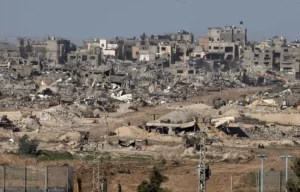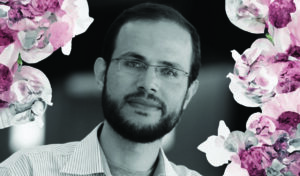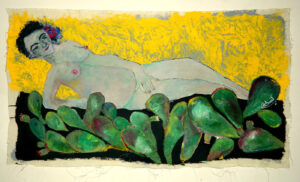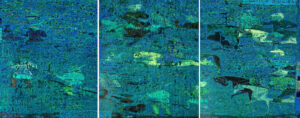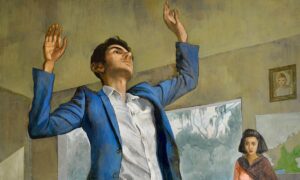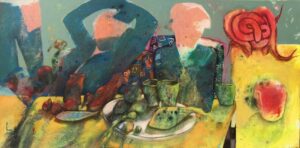In the violence of the Gaza War, a love that dares not speak its name blossoms.
We kissed, we hugged, all the time, any time we could, without anyone seeing us — at his place, at my place, in the park at night, among the ruins, in the mosque. Now he’s dead, and I’m held hostage by the Israelis. I want to throw insults at them, these soldiers who keep us terrified every day, but then I realize that won’t influence their government to stop bombing my people, my fellow countrymen.
I think of him instead. I want to see him one more time, I want to see his brown eyes, his small nose, his lips, I want to grab his arms one more time, I want to touch his neck, I want to kiss every one of his birthmarks, every one of his wounds, each and every part of his body. I’m enduring the Israelis’ belittling for days, but every time I remember him, I feel a bit better.
Every day, when I hear the planes flying over the military base in which I’m kept, I remember the last day we were together.
Of course, we kissed. I was afraid that somebody would see us, in the middle of the empty hall, but he told me, Israel is attacking us, they want to squash us like cockroaches. Maybe we die now, maybe we die tomorrow, maybe we survive. Everything is chaos, I don’t care about others.
During those first days of October, every kiss he gave me was an escape from everything. I felt amazing. For just a moment, I’d forget that 200 meters down the street, our neighbors lost their roof, I’d forget that half of my class had been killed in the bombings, I’d forget that my family was quickly packing all of our belongings to flee south. A calming silence filled with his strong embrace brought me to peace.
Then a siren blared. And then the rumble from the planes. We were thrown out of our trance; reflexively, he let go of me. We heard explosions, more of them in near-perfectly timed intervals.
When everything quieted down, he pulled my hand and we went out into the street. Another building had been torn to ruins. Everyone from the neighborhood got around the debris. People were taking pieces of concrete with tears in their eyes, frantically digging in hope of finding someone, dead or alive.
One woman started crying. Her family was inside.
The siren blared again. Everyone started running towards the mosque, the only building that wasn’t damaged. A lot of people squashed into the main hall. We were at the portal entrance.
He noticed that I was completely overcome by emotion. He hugged me. We stayed in that position for a long time. The feeling of escape came back again. It was as though I was flying with him to the Kingdom of Heaven, that God was happy to welcome us with open arms, and that our families were awaiting us there, accepting us for who we truly are.
I wanted to kiss him one more time. We didn’t let each other go. We looked at each other again, and that’s when the bomb fell.
The mosque started collapsing. We were still holding each other, but we were on the floor. He couldn’t move. A beam had fallen on his legs. I didn’t see anyone around to help us. I tried to lift it, without success. I turned to him. He looked at me calmly. Like none of this had just happened. There wasn’t any indication on his face that he was experiencing gruesome pain.
“Leave me.”
“I’m never leaving you, dammit!”
He pointed to the street. “Run,” he said, his voice weak. My tears fell on his hand. I bent down, took both his hands, and continued crying. “Do that for me. I’m going to keep your tears until you come back.”
I looked at him and smiled. In that moment I felt peaceful again.
“Would you look at that. Two Palestinians having an emotional moment.” Someone was behind us. I turned and saw two Israeli soldiers. They laughed at us. The epitome of evil: those words ran through my head.
One of them hit me with a rifle butt across my face and pulled me up.
As though he wasn’t trapped underneath a beam, he screamed with all of his remaining strength. The other soldier turned and shot him. I shrieked.
They killed him. They really killed him. Maybe they haven’t, he might still be breathing, maybe he’s still alive, by the power of God.
I didn’t even manage to get one last look at him; I was already being pulled out of the mosque by the bastards. There were more of them on the street. They were pushing someone around. It was the same woman who had cried for her family. Her abaya was stained with blood.
They took us to the military base. Every day I saw the same soldiers who had killed him, hoping there was a special place in Hell just for them.
They’re executing everyone today. They lined us up. The same woman was next to me. They blindfolded us and tied our arms. When I hear the tenth shot, I’ll know it’s my turn. Nobody said anything before being shot. I would only hear a shot, followed by the sound of a dead body falling to the floor. I was thinking about him. I was excited to see him again. I heard the tenth shot. They were getting ready to shoot me. Right before they pulled the trigger, I shouted: From the river to the sea, Palestine will be free!
I fell to the ground — but I felt I was flying, too, up to the sky.
I climbed the stairs. I looked behind me and saw the ruins of Gaza down there. I climbed so high that I couldn’t see Earth anymore. The stairs brought me to a clearing, all in white. There he was, sitting on the same beam that had taken his life.
“I knew we’d see each other again.”
We embraced. We knew that, one day the cockroaches shall win.
With the protests across Europe, even teenagers still in school have taken the Gaza war to heart and write passionately about the Palestinian people.



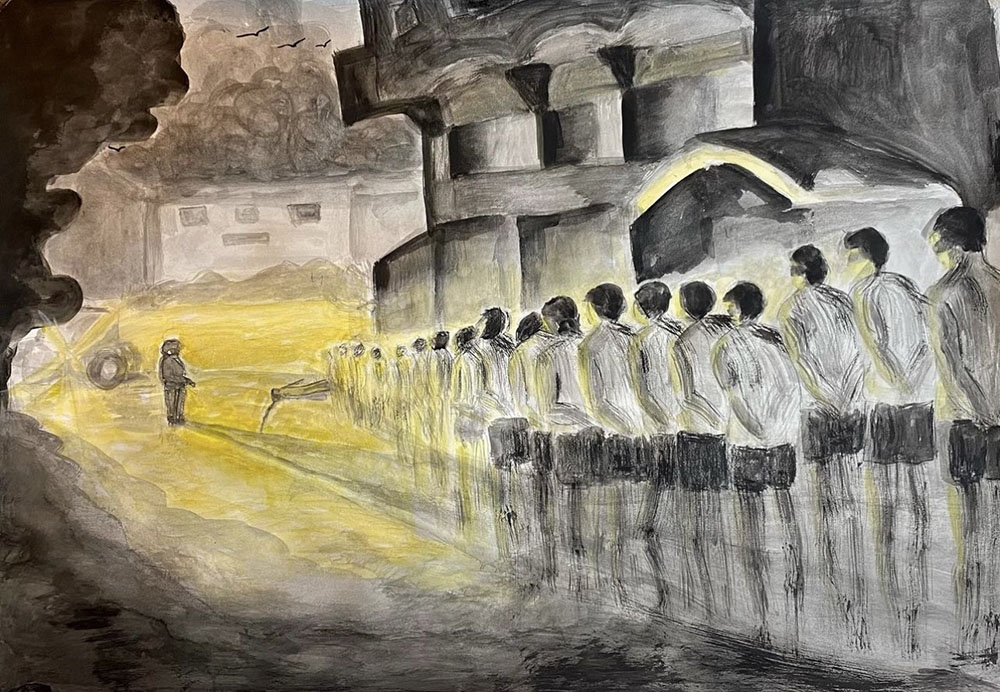
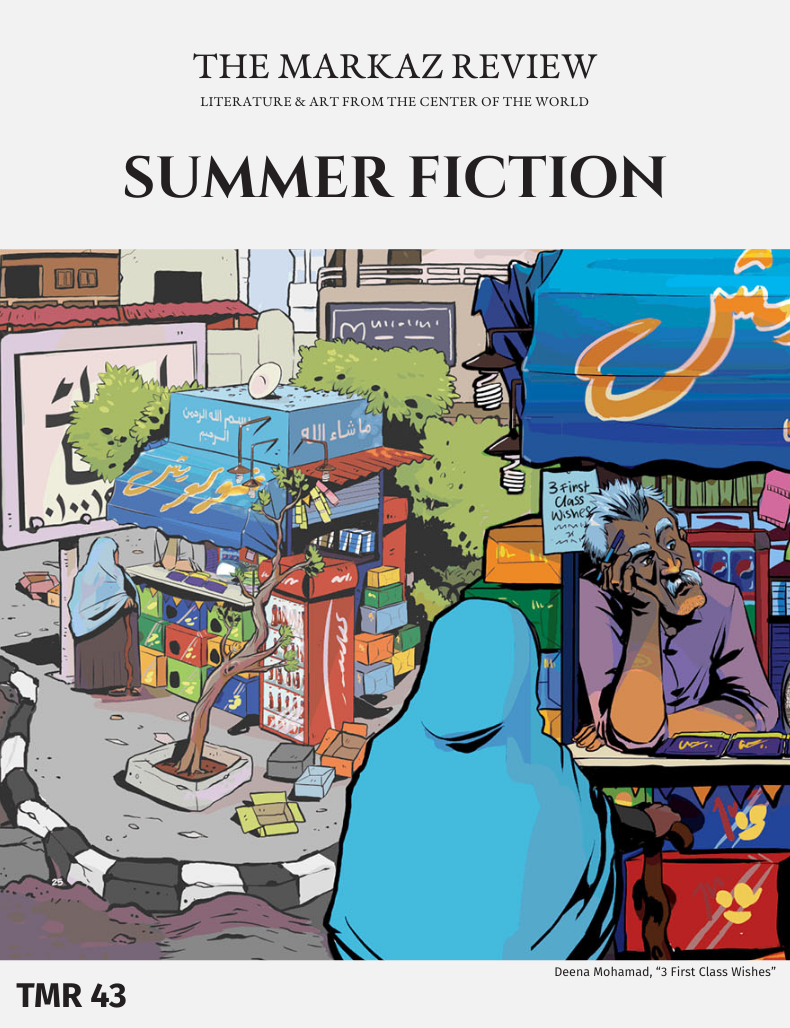
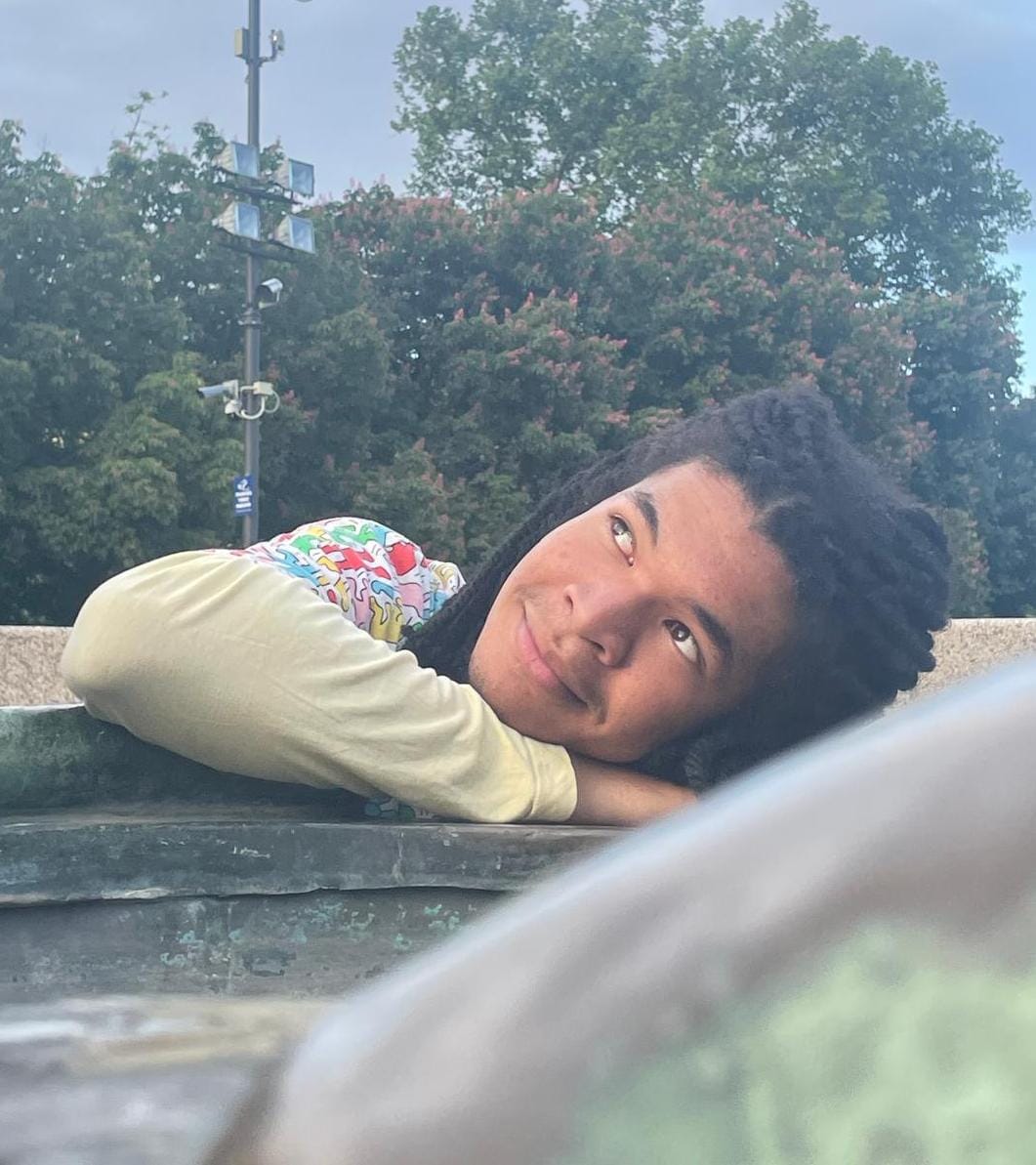



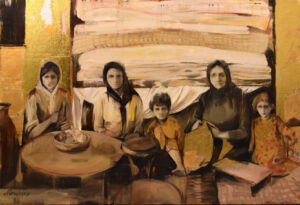

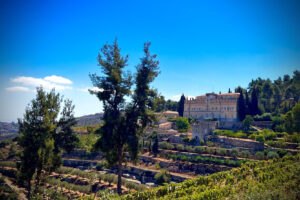























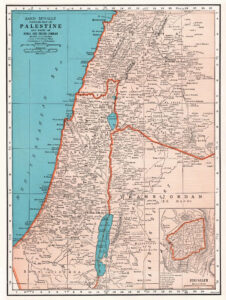






















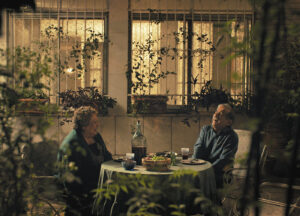
















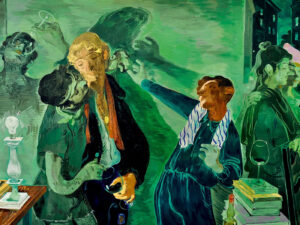












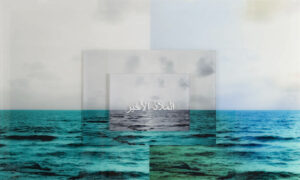
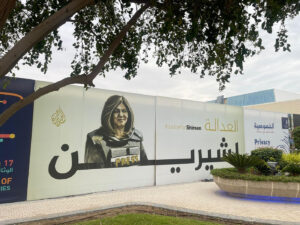






![Fady Joudah’s <em>[…]</em> Dares Us to Listen to Palestinian Words—and Silences](https://themarkaz.org/wp-content/uploads/2024/03/SAMAH-SHIHADI-DAIR-AL-QASSI-charcoal-on-paper-100x60-cm-2023-courtesy-Tabari-Artspace-300x180.jpg)














